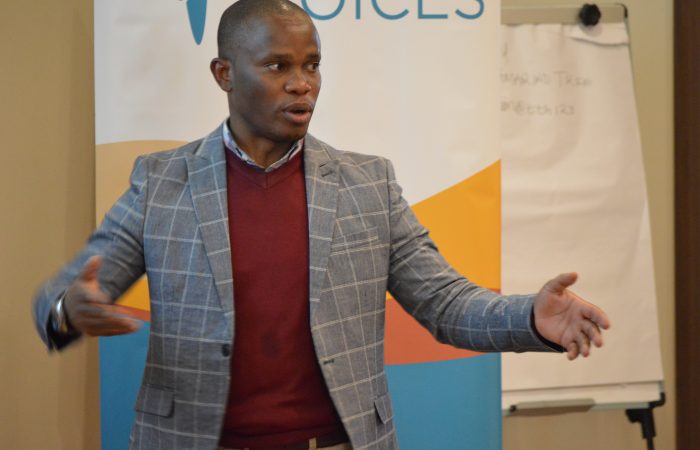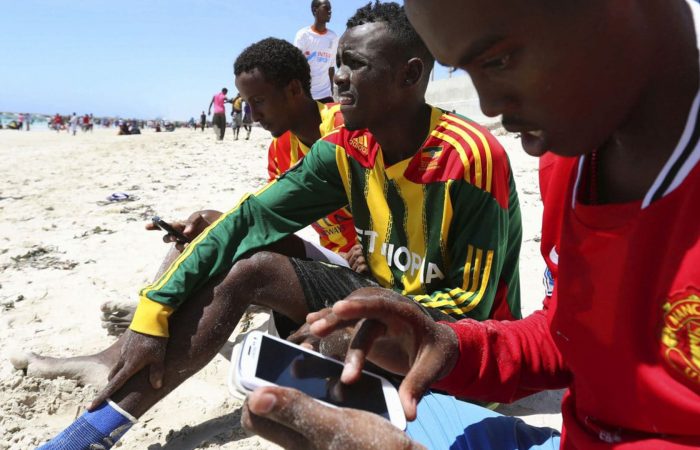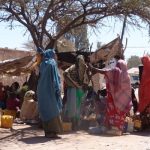I have been preoccupied with the phrase “valuing voices” ever since the earliest days of Africa’s Voices as a pilot research project at the University of Cambridge. It has all sorts of meanings and motivations: a call to arms, an ethical commitment, a cautionary counsel, a methodological challenge amidst data revolutions, a test for people centred technological innovation.
Above all, ‘valuing voices’ is about the ‘social’ in social research, the ‘civic’ in civic technology and the ‘citizen’ in ‘citizen engagement’. It foregrounds ‘voice’ and juxtaposes it with the dominant frame of ‘data’.
I’ve written about and talked about ‘valuing voices’ before. Now, as I embark on a two year stint building the Africa’s Voices vision from Nairobi, it seems like a good time to reflect again on these evolving thoughts.
Do digital communications harm the integrity of voices?
For me, this all starts with the ‘voices paradox’ in our digital age: The same digital communication technologies that create new affordances for diverse and plural voices in social and public life also allow for modes of data aggregation, computational analysis and knowledge assembling that may stifle, distort and manipulate the social and political power of those voices.
To travel vast distances and at speed, the digital as a mode of transmission pixellates voices literally to bits, to binary code, and this also allows voices to be copied, packaged, transmitted, processed and juiced in ways distended from their integral form and origin in human expression, and also from their meaning in context.
Social research is one such process of copying, packaging, transmitting, processing and juicing. We know full well how our digital information age has allowed actors to commodify social life, destabilise trust, ideas of truth and foundations for knowledge, and erode privacy. As researchers, we too are actors. We must see that new opportunities for data gathering and evidence generation in our digital age are built on the same troubling potentialities, that we must guard against.
Voices are more than data points
Some important arguments made by the social theorist Nick Couldry in his 2010 book, Why Voice Matters, are worth noting. Much depends on taking a socially situated approach to the contexts in which voice already matters in how people engage with each other, and then amplifying and extending these opportunities to new contexts where they can be valued in innovative and more powerful ways. We should not treat voices as data points — there to be farmed and harvested and brought into mechanised forms of knowledge production.
We should value what sustains voices in public life, including acts of greeting and communicative gestures, acts of exchange and listening, and new spaces of narrative formation where citizens do not merely give or receive information but are motivated to empathise, understand, and form active judgments. And we should be attentive to the meaning that exercising voice holds for individuals as social agents within a social reality that they care about — above all by giving due attention to forms of recognition that value voices.
Does your research adhere to these dimensions of valuing voices?
Recently, at the introductory session of our inaugural Africa’s Voices Academy in Nairobi, I drew on these and other thoughts when pondering a number of dimensions of ‘valuing voices’ that must be made to matter in digital social research (see below). A great mix of social researchers, donors, policy analysts, development practitioners, we had a very vibrant discussion with the group, reflecting on the extent to which innovative new research designs and tools really do, or do not, incorporate an attentiveness to ‘valuing voices’ at key moments.
I suggested eight different dimensions of valuing voices that matter, but it quite soon became clear that there are many more. Still, I think we would be off to a good start in our work at Africa’s Voices if we genuinely ticked each of these off.
Valuing voices…
1. …as human agents in social contexts, not mere data
More and more of the process of social research is caught up in lines of code, databases, cloud server repositories and dazzling visualisations. It might be true that much of the social sciences is being transformed by computer science.
Big data has created all wonder of possibilities. But we are still studying social worlds and human agents in these worlds. We cannot and must not lose sight of these worlds and these agents amidst a surfeit of data.
At Africa’s Voices, we give great emphasis to context, to language, and to the importance of interpreting meaning within data. We lay emphasis on amplifying unique voices in all of our analysis, not just observing aggregate patterns.
2. …as ends, not means, of digital tech
The debates over technological determinism are well worn, and so too is the fetishistic fascination with the wonders of new technologies for advancing humanity. Yet it is surprising how many methods of digital social research start with technological, not social, possibility. In the extreme, processing scripts and machine learning algorithms are all ready, just waiting for a data hosepipe to be connected.
Instead, people-centred design should start and end with the social reality being researched, bringing technology in as and when necessary to achieve these aims. Communication technologies are nothing for social research without the people whose lived realities speak through them.
3. …as empowerment: whose voices count?
Invariably, social researchers include and exclude different portions of social reality. It’s impossible not to. What matters is to have a conscious awareness of this, and design around it, in social processes. With digital social research, new inclusions and exclusions operate. Of course, these are around technological access, language, literacy and the like. But they also occur in the way that even amongst those voices that populate digital social realms, some social groups are liable to dominate.
For a start, valuing voices requires designing media engagement strategies that make target groups feel valued: trust, recognition and meaningfulness are crucial. Beyond this, social research frameworks that allow for insights from limited amounts of data and which foreground unique voices (or data points), are crucial.
4. …as research as a social process
This point follows from the previous on researchers as ‘gatekeepers’. It always surprises me that it is mostly qualitative, interpretive social researchers – researchers who research among and with people, not amongst abstract datasets – who take seriously the notions of ‘reflexivity’ and ‘positionality’: their power, their bias and their impact upon the reality that they research. Even many scientists, since Schroedinger and his cat, take seriously these kinds of matters.
Yet positivist, quantitative social scientists, and more recently data scientists in their wake, are prone to hide behind the veil of the spreadsheet or the database, not realising that their research, in its design, its implementation and its outcomes, is part and parcel of the one same social reality.
Social research has power and vulnerabilities, privileges and biases, effects and limitations, all of which come to bear in making the world anew that it is bound up in researching. Knowledge is power, in the making as much as anything else.
5. …as an ethical challenge of digital research
Issues around data privacy, security and protection are well known, but are at risk of being reduced to organisational policies, or checklists, or sign-offs etc. . These are all important, but hardly enough. Responsible data is a damned difficult endeavour… taking it seriously starts with an understanding that it is a vexed ethical challenge.
Digital social researchers cannot absolve themselves of responsibility, nor can they simply discharge such responsibility. There are impossibly difficult trade-offs in amplifying voices of the hardest to hear and, in the same process, making them more capable of scrutiny and capture. I certainly don’t have all the answers, nor do I think does Africa’s Voices: but that has to be the right understanding to start, and stick, with.
6. …as rigour: producing scientific knowledge
Lots of data; more data rich graphs, charts and interfaces; a plethora of patterns and observations: we should not lose sight of the fact that the production of scientific knowledge has never depended on simply more data, but rather the right epistemological foundations, scientific theories and processes of analysis, inference and interpretation.
New sources of data, new instruments and methods for gathering that data have certainly brought with them exciting new challenges for conducting robust social research. But challenges they remain… and we owe it to the voices that lie behind the data we analyse, represent and put forward within the claims to knowledge we make, to ensure rigour and credibility.
7. …as evidence that can matter to decisions
In the realm of applied social research that is for development, for governance, for social justice or for humanitarian need, it is usually a range of institutional stakeholders (governments, international agencies, civil society, corporates) that are the targets of this research.
Whilst valuing voices cannot mean that they are the sole endpoints (indeed, returning knowledge to the principals whose voices have been researched is a must), it is equally clear that the world-views and requirements of institutional decision-makers matters a whole lot.
We owe it to those whom we research to ensure that the evidence generated from digital social research counts for those who might act on it. We might influence these stakeholders to think differently about the evidence that can and should matter, but influencing decisions must be designed into the whole research process.
8. …as a responsibility for impact
Beyond evidence that matters for decision-making, applied digital social research starts and ends with a responsibility for impact. It cannot be worth the use of (often) public money, the opportunity costs of that money, the time and goodwill of those who engage with the research process, or the hope of expectation of many who consider it important to processes of social and political change, to not place the pathway to impact first and foremost within the research process. Often that means committing to do less, not more, but to do it well and to see it through all the way.
At Africa’s Voices, I don’t think we could ask ourselves too often this simple question: within the limits of what we could do, what would be the most impactful piece of research that would give greatest value to the voices of those whom we have made heard?





